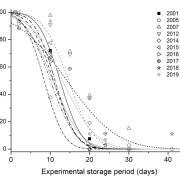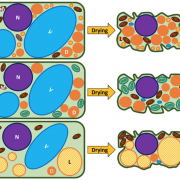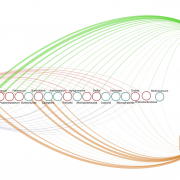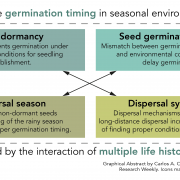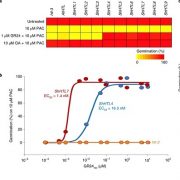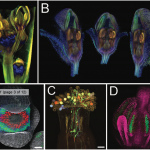The process of seed maturation is influenced by mechanical constraints (New Phytol.)
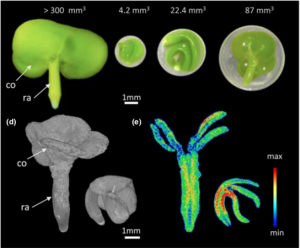 Developing organs need to sense their surroundings to modulate their growth. In the case of embryos, their development is physically limited by the embryo sac; thus, they must assess the space they have available for growing and modulate their growth accordingly. In this paper, Rolletschek et al. report for the first time first that embryos can adjust their expansion and metabolite storage in response to space restrictions both in planta and in vitro. Seeds grown in constricted siliques had smaller embryos but with higher protein and lipid content. Moreover, the analysis of labeled 13C-sucrose and 15N-glutamine revealed that embryos of constricted siliques had a lowered nutrient uptake. By growing excised embryos in chambers of varying volumes, the authors found that this response in size reduction and metabolite deposition was not only proportional to available space for growing but relatively free of maternal influence. Even if the exact mechanism that triggers this response is yet to be described, this study provides evidence that embryos can modulate their growth and metabolism in response to the space available for their development. (Summary by Carlos A. Ordóñez-Parra @caordonezparra) New Phytol. 10.1111/nph.16815
Developing organs need to sense their surroundings to modulate their growth. In the case of embryos, their development is physically limited by the embryo sac; thus, they must assess the space they have available for growing and modulate their growth accordingly. In this paper, Rolletschek et al. report for the first time first that embryos can adjust their expansion and metabolite storage in response to space restrictions both in planta and in vitro. Seeds grown in constricted siliques had smaller embryos but with higher protein and lipid content. Moreover, the analysis of labeled 13C-sucrose and 15N-glutamine revealed that embryos of constricted siliques had a lowered nutrient uptake. By growing excised embryos in chambers of varying volumes, the authors found that this response in size reduction and metabolite deposition was not only proportional to available space for growing but relatively free of maternal influence. Even if the exact mechanism that triggers this response is yet to be described, this study provides evidence that embryos can modulate their growth and metabolism in response to the space available for their development. (Summary by Carlos A. Ordóñez-Parra @caordonezparra) New Phytol. 10.1111/nph.16815


